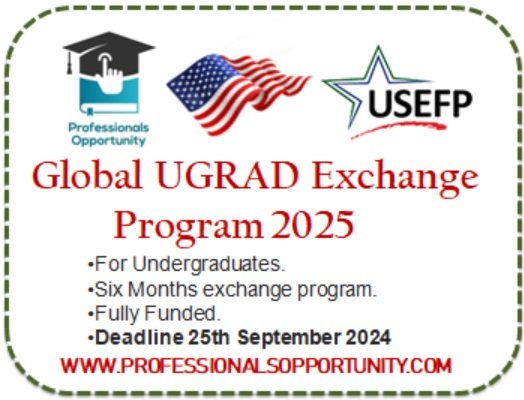
How to find a good scholarship for College students ?
Introduction:
Applying for scholarships can be an intimidating process but with the right resources and strategy, you can increase your chances of securing financial support for college.
First, let me provide some context on why finding scholarships is so important. The cost of higher education continues rising every year, making it increasingly difficult for many students and families to afford college without assistance. Scholarships present a great opportunity to offset tuition costs and lessen the financial burden of your degree. They also demonstrate to future employers your academic achievements and dedication to learning. Landing scholarships through hard work and a thoughtful application shows you are motivated, organized and ambitious – all desirable qualities.
Now that we understand the value scholarships hold, let’s dive into how you can maximize your chances of obtaining one. My recommendations are based on years of assisting students through this process both in my role advising at a university and through volunteering with nonprofits focused on access to education. With diligence and effort, you too can join the ranks of recipients who are furthering their education thanks to scholarship support.

Determine Your Eligibility:
The first step is assessing what types of scholarships you may be eligible for based on your background and qualifications. All scholarships have unique eligibility criteria so it’s important to research thoroughly and only apply where you align. Some common criteria scholarships consider include:
- Academic Merit: Grades, test scores, intended major/field of study
- Financial Need: Family income/assets, ability to afford remaining costs after aid
- Demographic Factors: Ethnicity/race, underrepresented group membership
- Extracurricular Interests: Sports, arts, volunteering, affiliations
- Career Goals: Interested industries, impacted populations, public service
Take stock of your profile by pulling transcripts, test scores, activity listings. Note any qualifications that match common scholarship priority areas like being a first-gen college student, involved in your community, part of an underserved population etc. Having a clear picture of yourself as a candidate helps target your applications strategically.
Search Multiple Scholarship Databases:
Once you understand your eligibility, it’s time to source relevant scholarship opportunities. Research takes time but pays off – the more options you consider, the higher your odds of winning support. I recommend starting with larger scholarship databases to cast a wide net:
- Fastweb.com: One of the most extensive freely searchable databases, filtered by your criteria.
- Scholarships.com: Similar database with lots of private and specialty scholarships
- Your College’s Scholarship Listing: Familiarise yourself with internal options offered.
- Cappex.com: Database focused on merit awards, especially for high-achieving students.
- Diversity Scholarship Databases: For underrepresented students (UnidosUS, ALPFA, etc.)
From these hits, note any deadlines and keep the most aligned listings in a master spreadsheet for organized follow up. Don’t limit yourself here – also explore specialized niche databases related to your major, background, talents.
Check Community Sources:
While big databases cover major awards, don’t overlook funding in your own community. Local sponsoring groups, employers, organizations and high school guidance teams often have insights on hidden gems. Ask teachers, mentors, coaches, guidance counsellors and reference librarians about regional opportunities. Also inquire with work supervisors, place of worship, clubs/teams you’re involved in. These contacts have first-hand knowledge of scholarships exclusive to their region or cause.
Additionally, regularly follow your town/city’s online listings and community bulletin boards. Smaller community sponsors tend to advertise locally versus national databases. Making a habit of checking these local leads could tip you off to awards that see less applicant traffic.
Approach Companies and Fields of Interest:
Another underutilized scholarship avenue is directly contacting companies and trade organizations connected to your intended career path or extracurricular interests. Reach out and ask if they offer any educational funding for aspiring future employees or enthusiasts in your specialty.
For example, if passionate about wildlife biology, inquire with local conservation non-profits and environmental agencies. If a skilled soccer player, ask your team’s league about athletic scholarships. Past potential employers may also contribute if impressed by your initiative – seizing those networking opportunities yields dividends. Broadening scholarship pursuit beyond predefined searches multiplies your matches.
Review Qualification Requirements Thoroughly:
Of high importance once locating potential matches – thoroughly review each listing’s detailed criteria and instructions. Pay close attention to specifications such as:
- Minimum GPA or test scores required
- Intended major/future career field restrictions
- Demographic qualifications (i.e. ethnicity)
- Letters of recommendation guidelines
- Essay prompts and content expectations
- Official transcript and FAFSA filing procedures
- Specific award amounts and renewal policies
Disqualifying yourself from consideration by missing technical requirements wastes your effort. Be methodical in confirming your alignment with every element before dedicating the work to apply. You’ll save valuable time and improve your chances overall.
Prepare Required Application Materials Early:
Composing application components deserves forethought. Begin work on your personal statement essays, activity resume, letters of recommendation, and FAFSA form/profile authorization at minimum 2-3 months before deadlines. These elements take careful thought, multiple drafts and timely verification. Rushing risks producing subpar submissions.
Give recommenders ample notice. Some may require several weeks to draft effective endorsements. Make the process easy on them by providing a draft statement of your skills and goals plus due date reminders. Similarly, FAFSA forms don’t populate overnight – budget enough lead time for processing as these documents can be scholarship requirements. Staying ahead of timelines will minimize stress.
Tailor Materials to Each Scholarship:
While some core elements like essays carry over applications, individualizing content is vital. Scholarship committees spot generic, copy/paste responses easily. Instead, align materials to each listing’s unique focus areas and goals.
For example, if an award prioritizes community service, emphasize those experiences over all others in your application. Or, if targeting a future teacher scholarship, weave education themes throughout your personal statement and resume. Pick quotes, stories and examples that most resonate with the sponsor’s interests. Use your knowledge of each opportunity to stand out as a seamless fit.

Proofread Thoroughly and Solicit Feedback:
With multiple applications underway, meticulous proofreading is mandatory. Ask several friends and mentors with strong writing abilities to review all materials with a critical eye. Fresh perspectives catch subtle errors better than our own.
Beyond just syntax and formatting, inquire whether your message and qualifications are clearly communicated as intended. Are stories and experiences described memorably? Sponsors have limited time with each application – maximize readability and impact. Incorporate reviewer feedback so your full potential shines through to selection committees.
Follow Up Professionally:
Even with stellar applications, following up tactfully can sometimes make the difference between being considered and being awarded. After submitting your materials, I suggest:
- Thank scholarship sponsors for the opportunity via brief notes
- Check in politely a few weeks before decision dates if you’ve yet to hear back
- Express gratitude regardless of result and offer future assistance if able
Cordial follow ups leave positive impressions upon those reviewing your candidacy. While not always fruitful, the small effort could tip the scales when sponsors face equally worthy prospects. Professionalism and politeness are your friends in this process.
Tell Others of Your Success:
As recipients, don’t keep your accomplishments private. Consider sharing news of awards with your school communications teams, local press outlets and alumni networks. Highlighting how scholarships ease access enhances visibility of funding opportunities for future students.
If unable to accept an award due to alternate commitments or plans changing, notify sponsors promptly so alternate recipients can benefit. Your kindness allows qualified peers to further their studies where openings unexpectedly arise. Always celebrate your peers’ scholarship wins publicly as well to spread encouragement in learning communities.
Reapply Strategically Each Year:
Opportunities for further scholarships frequently present themselves year after year from both recurring and timely advocacy causes. Those awarded as freshmen should prepare applications in advance for renewable upper-class honours. Stay up-to-date on relevant deadlines versus missing out on multi-year funding renewal chances.
Additionally, rising circumstances like becoming a program officer or changing interests may open new potentials worth exploring anew. Treat future applications as iterative improvements versus isolated tries; debrief outcomes constructively towards stronger showings long-term. Persistence and growth mindsets serve applicants well through multiple cycles of aid pursuit.
Narrow your focus:
Rather than scattershot applying to every scholarship under the sun, prioritise your efforts on 5-10 that you are highly qualified for based on your background and goals. Spend more time fine-tuning strong applications targeted to your ideal matches.
Have others review your essays:
Don’t just proofread for technical errors – have 2-3 others carefully examine your essays and provide substantive feedback. Ask them to comment on how effectively you conveyed your message and qualifications. Incorporate their critiques to strengthen your narratives.
Highlight unique experiences:
Scholarship committees see many similar applications, so find ways to showcase experiences, skills or perspectives that set you apart. For example, participating in an unconventional extracurricular, overcoming adversity, being first in your family to attend college.
Investigate niche opportunities:
In addition to large databases, research more specialized programs through professional associations, cultural organizations, employers and more directly related to your interests, background or field of study.
Conclusion:
In summary, finding scholarship opportunities and crafting strong competitive applications takes focus, organization and perseverance. But for students willing to put in the dedicated effort, the rewards of financial assistance for college can be tremendously impactful. Following the tips discussed – from researching your eligibility and prospective matches to nailing the submission details to continued professional follow up – will serve job-seekers well on their scholarship journey.
While the process may at times feel daunting, remember that scholarship selection committees want to help motivated learners achieve their academic dreams. They are on your side. By taking the time to understand their priorities and crafting targeted materials highlighting your qualifications and passion, you present the best chance at success. Stay optimistic yet realistic in your application strategy.
Above all, make the most of available guidance resources. Reach out to your school counsellors, scholarship advisors, reference librarians and mentors for tips customized to your situation. Leverage others’ expertise whenever you hit roadblocks. Asking for help is not a sign of weakness but wisdom.
This scholarship season, go forth with diligence, perseverance and belief in yourself. Your dedication will shine through to selection committees reviewing stacks of applications. Best of luck in your funding searches – I’m cheering you on in achieving your higher education and career aspirations! The opportunities are out there waiting to be discovered by students committed to seeking them.
FAQs
Q: When should I start applying for scholarships?
A: The ideal time to begin is 6-12 months before the academic year you plan to use the award. This allows sufficient time to research opportunities, complete applications thoroughly and meet deadlines several months in advance.
Q: How many scholarships should I apply for?
A: Most experts recommend applying for 5-10 scholarships that you are highly qualified for based on your background and goals. Focus your efforts on your top opportunities rather than a high volume of less targeted awards.
Q: Can incoming freshmen find scholarships?
A: Absolutely. There are many scholarships designed specifically for high school seniors and first-year undergraduates. Be sure to check listings from your guidance counsellors, intended college/university and general award databases. Academic merit is often a main criteria for freshmen awards.
Q: What if I don’t meet all the eligibility requirements?
A: Carefully review each scholarship listing to confirm you satisfy all criteria before applying. If not qualified based on guidelines like GPA, intended major etc., it’s best not to waste time on those applications. Focus on your strongest matches where you align fully with specifications.
Q: How should I follow up after applying?
A: A brief professional note thanking the sponsors for their consideration is recommended. You can politely check in on your application status a few weeks prior to decision releases as well. Follow up with gratitude and offer future assistance once results come out.
Q: What if I’m awarded but have a change of plans?
A: Notify the scholarship organisation as soon as possible if you are unable to accept the award or must defer usage due to changes in your circumstances. This courtesy allows them to reallocate funding to other worthy candidates. Always act with transparency and respect.














